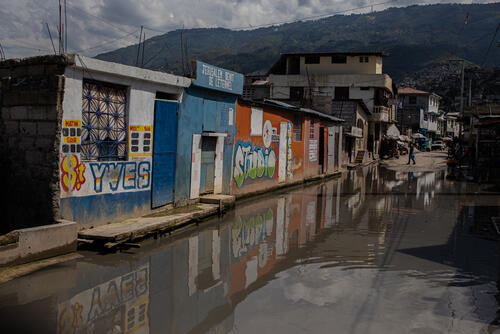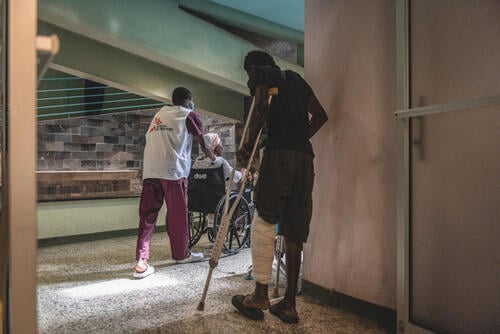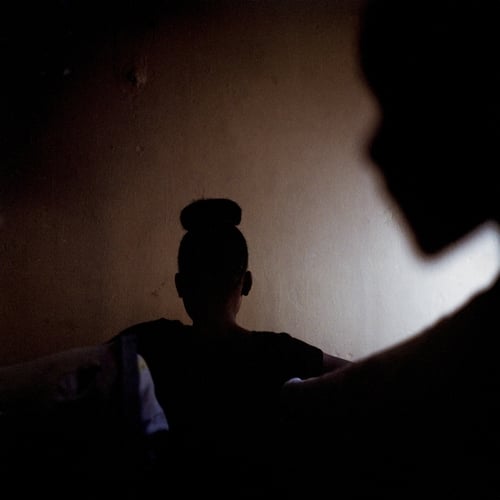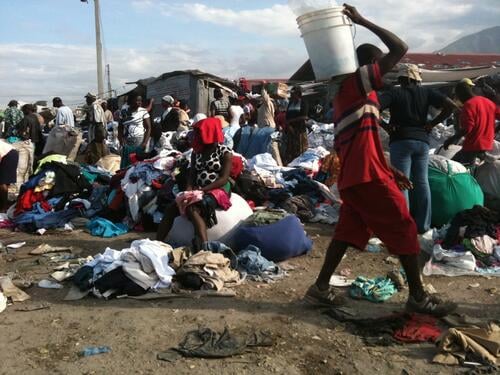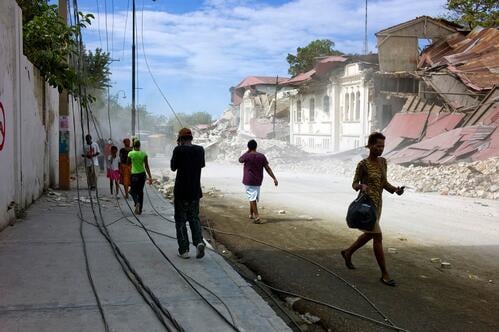In Haiti, we provide care to victims of trauma, survivors of sexual and gender-based violence, as well as sexual and reproductive care. With natural disasters regularly occurring in the country, emergency response also remains a central aspect of our work in the country.
Since the assassination of the Haitian President in 2021, the people of the capital Port-au-Prince have been struggling to survive as armed gangs, police, and civilian self-defence brigades fight in the streets of the city. The already volatile situation has been deteriorating even further after an announcement on 28 February 2024 that elections would be postponed until as late as August 2025. More than 15,000 people were displaced in Port-au-Prince within just one week in early March.
We are scaling up our medical activities to care for the mounting number of people injured in the escalating violence and political unrest that has engulfed the city.
Our teams currently run two trauma hospitals in Tabarre and Carrefour, two emergency centres in Drouillard and Turgeau, and one centre for survivors of sexual violence in the Port-au-Prince metropolitan area. Mobile clinics have been temporarily suspended due to the volatile situation.
What we do in Haiti

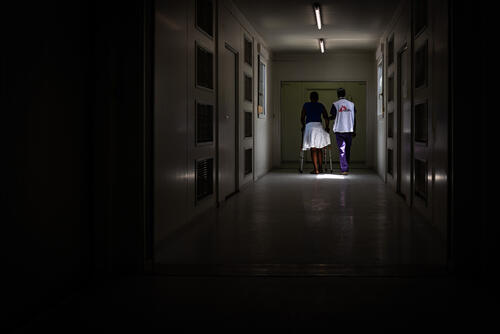
Armed clashes continue to affect communities in Haiti’s capital, Port-au-Prince. While maintaining functioning medical structures during these clashes is a challenge, with kidnappings and armed robberies rampant across Port-au-Prince, we have continued to provide trauma care. Our teams treat people with gunshot and stab wounds, severe burns, and victims of road accidents in several medical facilities across the capital.

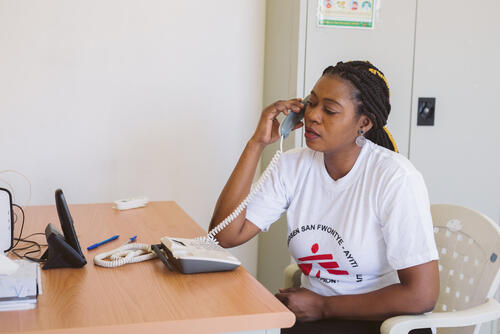
The prevalence of sexual and gender-based violence (SGBV) is a continuing concern in Haiti. We support multiple health facilities in providing care dedicated to victims of SGBV that includes medical, psychological, and social care. The introduction of a free telephone helpline has increased accessto care, offering victims remote psychological support and referrals to health centres.

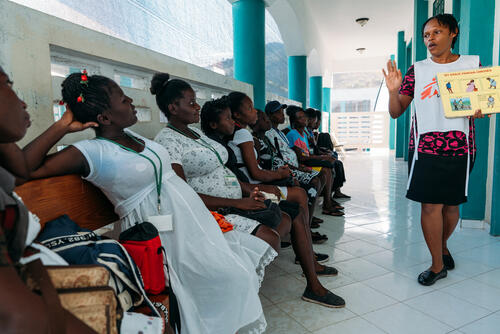
Sexual and reproductive care remains an essential area of activity for our teams in Haiti. We are providing women with proper prenatal and neonatal care to continue our work on reducing the maternal and infant mortality rate. We also provide recreational and educational activities to promote family planning and sexually transmitted disease prevention and management.

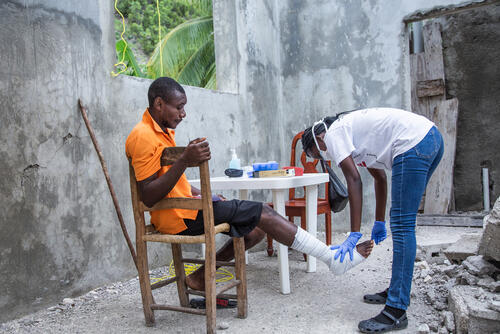
With enduring armed clashes and frequent natural disasters, our teams conduct emergency operations in Haiti. Water and sanitation support is provided to communities affected by the violence in Port-au-Prince. After an earthquake in August 2021, we provided emergency care to victims that included surgery, water and sanitation support and mobile clinics to rural areas.
Our activities in 2023 in Haiti
Data and information from the International Activity Report 2023.
1,968
1,968
€49.6 M
49.6M
1991
1991
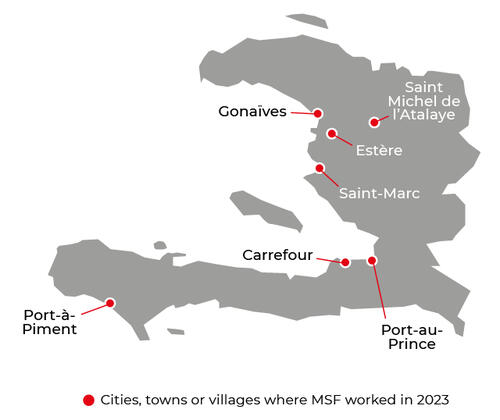

37,600
37,6
4,200
4,2
5,780
5,78

1,420
1,42
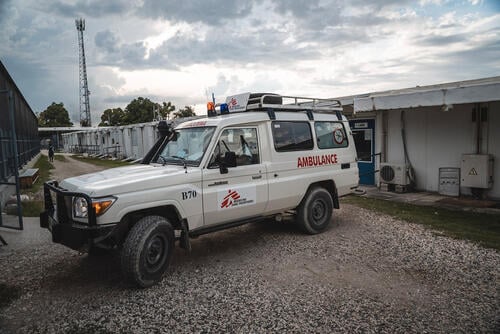
Armed men violently enter Tabarre hospital and forcibly remove patient
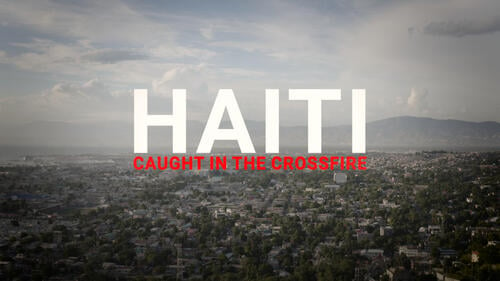
The living hell of Port-au-Prince
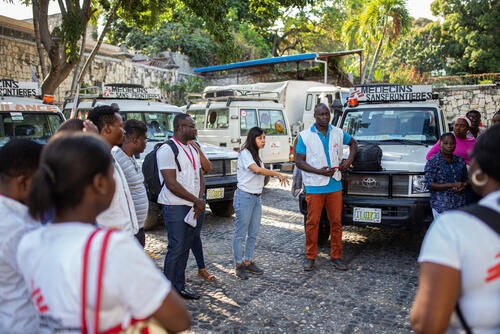
People trapped by violence in need of medical assistance
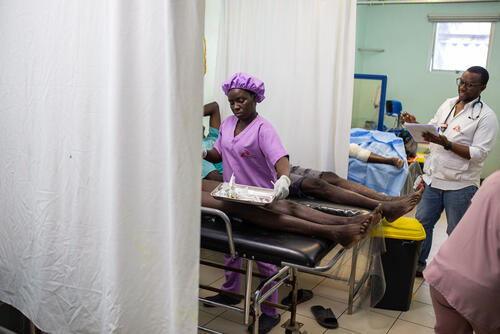
Violent clashes in Haiti capital leave people in severe danger
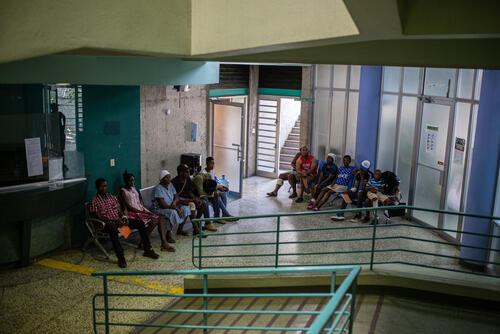
Violent clashes force temporary closure of MSF hospital in Cité Soleil
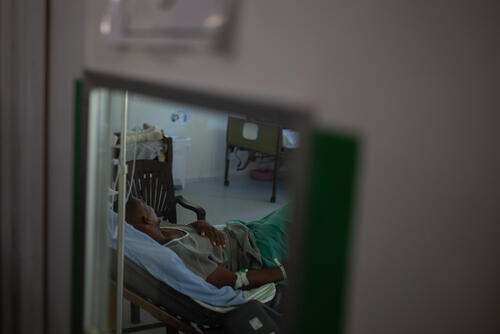
MSF activities in Haiti under threat after series of security incidents
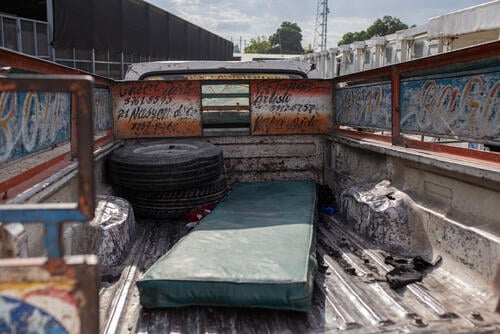
MSF forced to suspend activities in Haiti hospital after armed men kill patient
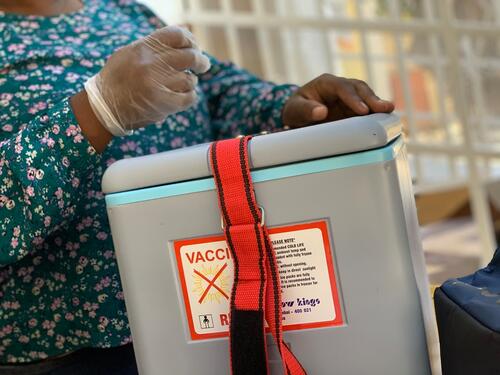
Supporting cholera vaccination efforts in Haiti
